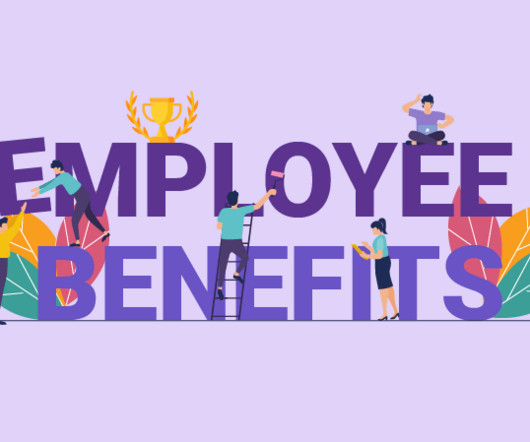What Is an Employee Benefits Consultant and What Do They Do?
Fringe Benefit Analysts
MAY 8, 2022
Finding the best team members many times means offering a comprehensive package; however, it can be time-consuming and difficult to decide on the best plans, and then implement them, when it is not within the expertise or scope of a company’s current human resources (HR) department.












Let's personalize your content